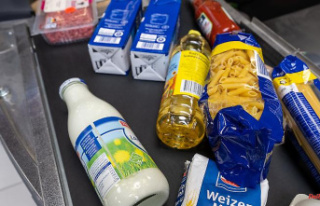Ranil Wickremesinghe is one of Sri Lanka's most experienced politicians. Now he's winning the island nation's presidential election and promising to "lead the country out of the crisis." However, the protest movement sees the 73-year-old as an ally of the former president who fled.
Sri Lanka's interim president Ranil Wickremesinghe has been elected the new head of state in the South Asian crisis country. According to the official voting result, the 73-year-old received 134 votes in parliament. Ex-Education Minister Dullas Alahapperuma received 82 votes. Only three MPs voted for the leader of the left-wing opposition party, JVP, Anura Dissanayak.
The division of the country has now been overcome, Wickremesinghe said in a short acceptance speech in Parliament. He called on Alahapperuma to join him and "work together to lead the country out of the crisis."
Wickremesinghe is one of his country's most experienced politicians. The 73-year-old began his political career in parliament in 1977 and was prime minister six times. He is a trained lawyer and comes from a family of politicians. In the parliamentary elections in August 2020, however, his own party only won one seat. After the flight of President Gotabaya Rajapaksa as a result of the mass protests, Wickremesinghe had previously taken over his post on an interim basis.
Observers assume that Wickremesinghe will crack down as president. He is now expected to appoint Public Administration Minister Dinesh Gunawardena as the new Prime Minister. He is a staunch Rajapaksa devotee. Because of his connection to the ex-president, mass protests have been calling for Wickremesinghe's resignation as prime minister for weeks. Demonstrators had announced that they would continue to protest against him.
Sri Lanka, with its approximately 22 million inhabitants, is experiencing the worst economic crisis in decades. The government has therefore asked the International Monetary Fund, India, China, Russia and other countries for help, among others. In the island state south of India there is a shortage of fuel, gas for cooking, medicine and food. The heavily indebted country lacks the money to import important goods. High inflation and hour-long power outages also cause great resentment. The reasons for the crisis are manifold - including mismanagement and corruption, but also the consequences of the corona pandemic, which hit the important tourism sector particularly hard.












